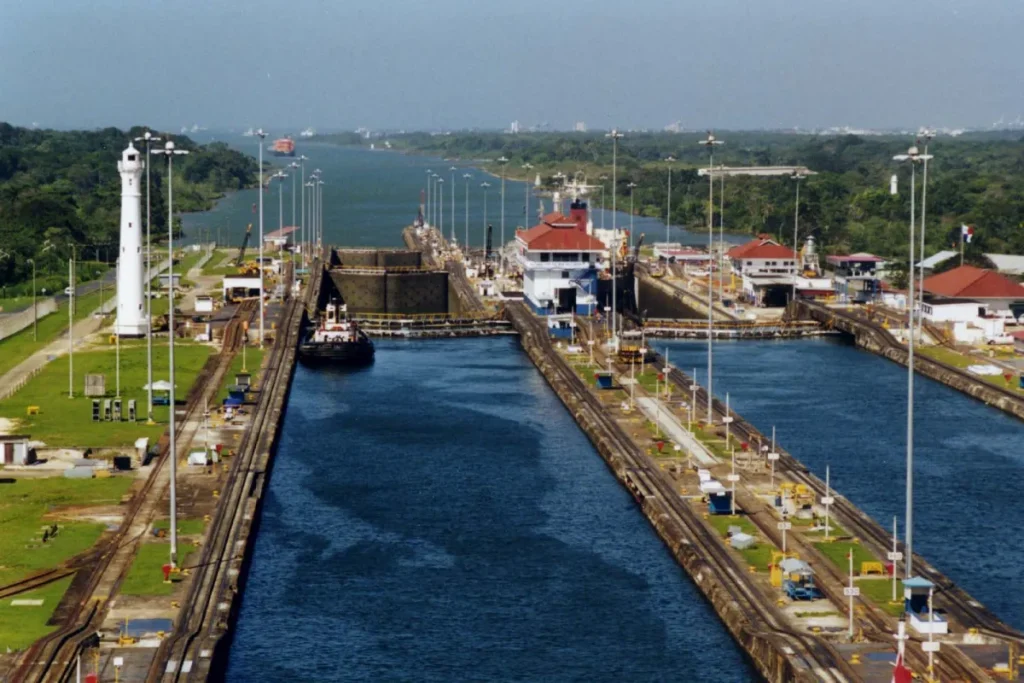Donald Trump’s recent remarks about reclaiming control of the Panama Canal disregard international law and undermine the legacy of the Black Caribbean workers who built it. His statements come at a critical moment as Panama is led by President José Raúl Mulino, whose right-wing administration has already displayed an alignment with neoliberal and foreign business interests, raising serious concerns about how the nation will respond to Trump’s threats.
The Panama Canal, constructed through the backbreaking and often deadly labor of mostly Black workers, primarily from the Caribbean — not the U.S., as Trump falsely stated, is a global symbol of resilience and sacrifice. For decades, their contributions were overlooked, even as the Torrijos-Carter Treaties of 1977 eventually secured Panama’s sovereignty over the canal in 1999.
Trump’s comments not only challenge an internationally recognized and duly ratified treaty, but also reduce the canal to a commodity that supposedly can be claimed at will. This dismissive attitude, while unsurprising, erases the memory of those workers, especially the thousands of Black workers whose labor and lost lives underpin the canal’s very existence, further perpetuating their historical marginalization.
This moment also coincides with the recent 35th anniversary of the U.S. invasion of Panama, on December 20, 1989, where thousands of Panamanians, disproportionately Black, lost their lives in what was presented as a mission to oust General Manuel Antonio Noriega from power. The anniversary serves as a stark reminder of the ongoing legacy of violence and disregard for Black lives in Panama — a thread that runs from the canal’s construction through the invasion and into present-day struggles for sovereignty. Trump’s remarks are dismissive of Panama’s autonomy and echo the same imperialist mindset that has repeatedly subjected this small nation and its Black communities to exploitation and bloodshed. For many, this is not just a rhetorical threat but part of a continuum of attacks that Panama has had to resist for generations.
Land sovereignty and neoliberal contradictions
Mulino’s right-wing administration complicates this moment. His recent assertion that “Panama’s border is in the Darién,” made in response to the immigration crisis, positions him as a nationalist defender of territorial sovereignty. However, his actions reveal a troubling contradiction. For instance, his administration has shown willingness to cater to foreign corporate interests, as seen in the push to reopen the Cobre Panamá mine despite a ruling by Panama’s Supreme Court declaring the mine’s underlying contract unconstitutional.This raises critical questions about how Mulino will respond to Trump’s imperialist overtures.
The intersection of canal and land sovereignty
Mulino’s nationalist posturing about the Darién Gap highlights additional potential for political inconsistencies to arise. While his administration espouses sovereignty in its immigration and border rhetoric, its current economic policies suggest a willingness to compromise Panama’s autonomy. Trump’s threats force Panama to confront a dual challenge: defending its land sovereignty in the Darién and its water sovereignty in the canal.
How will the Mulino administration balance its campaign rhetoric, which promised to stop the migrant flow from the South — a promise requiring U.S. financial support, with Trump’s newly imposed pressure campaign, which could sacrifice Panama’s long- sought autonomy?
Further complicating the calculus is the public appeal by the Canadian-/Chinese-controlled Cobre mine for Trump to intervene and force a reopening, particularly considering that the Mulino government also supports a reopening and most recently disparaged local activists and critics of the mine as narcoterrorists.
A call for a unified response
Trump’s comments demand a clear and united response from Panama to protect its sovereignty, the legacy of the Black laborers who built the canal, and the work completed by Panama in the last 20 years to expand the canal’s capacity. Although the Mulino administration has responded with technical explanations, saying the “(t)ariffs are not set on a whim,” he must also meet this moment when Trump is beating the drum of big stick diplomacy.
In responding to Trump, Mulino said that when it “comes to our canal, and our sovereignty, we will all unite under our Panamanian flag.” It was a strong salvo to galvanize the country and a call for firm diplomacy. Nevertheless, Mulino’s alignment with right-wing and corporate interests raise concerns about whether his conduct will meet his words and if he will rise to the occasion.
Critical socio-economic, political, and environmental improvements are yet to be accomplished in Panama, but the canal has always been a clarion call that unites. The fight to defend the canal is not just a geopolitical issue, but a fight for the dignity, memory, and sovereignty of all Panamanians, particularly the Black communities throughout the diaspora whose contributions made the canal possible.
As Trump prepares to take office, the Mulino administration’s response will determine whether Panama’s sovereignty is upheld, sold out to the highest bidder or stolen at the barrel of a gun.
Janvieve Williams Comrie is a human rights strategist, trainer, and organizer with a deep commitment to assist in building powerful social movements for racial justice and human rights. She is the founder of AfroResistance, an Americas-based organization that focuses on racial and gender justice. Amilcar Maceo Priestley is an attorney, director of the AfroLatin@® Project (http://afrolatinoproject.org/), and co-director of the Afro-Latino Festival of New York and the Liberación Film Festival (www.afrolatinofestnyc). The project aims to facilitate the digital curation of Afrolatino experiences and histories, and to encourage the use of digital tools for the socioeconomic and political development of Afrolatino communities. It has curated the longest-running conference on Afrolatinos in the U.S.: the AfrolatinTalks.


